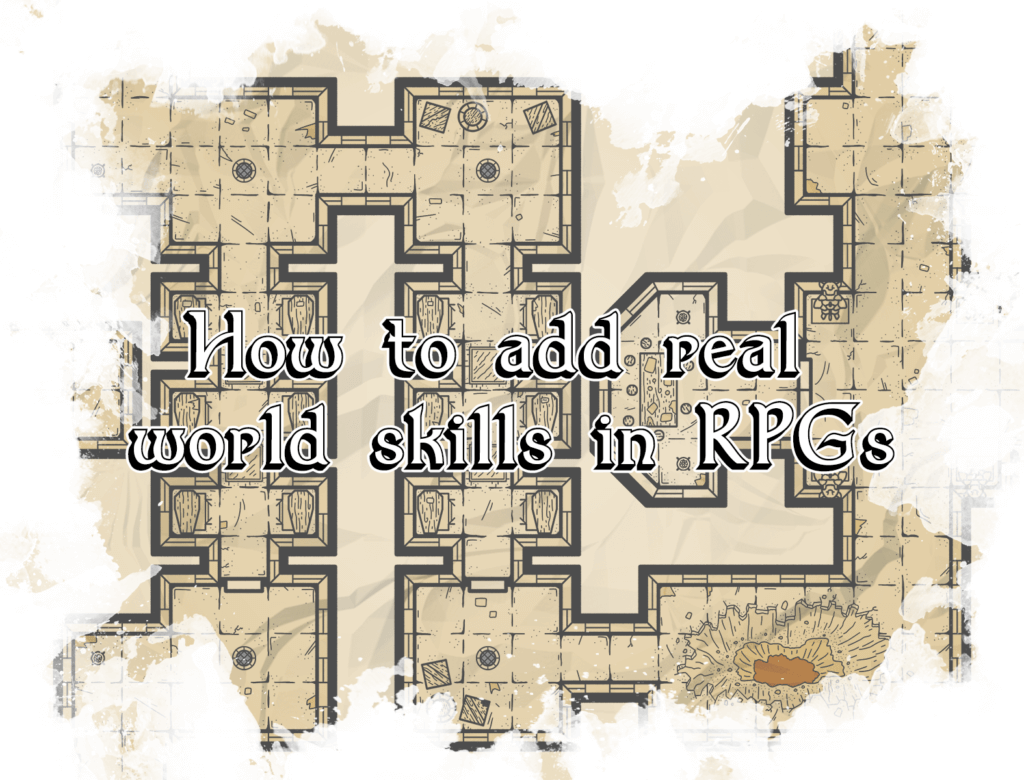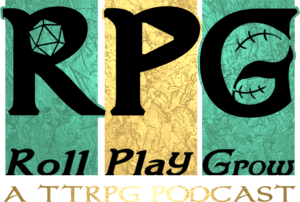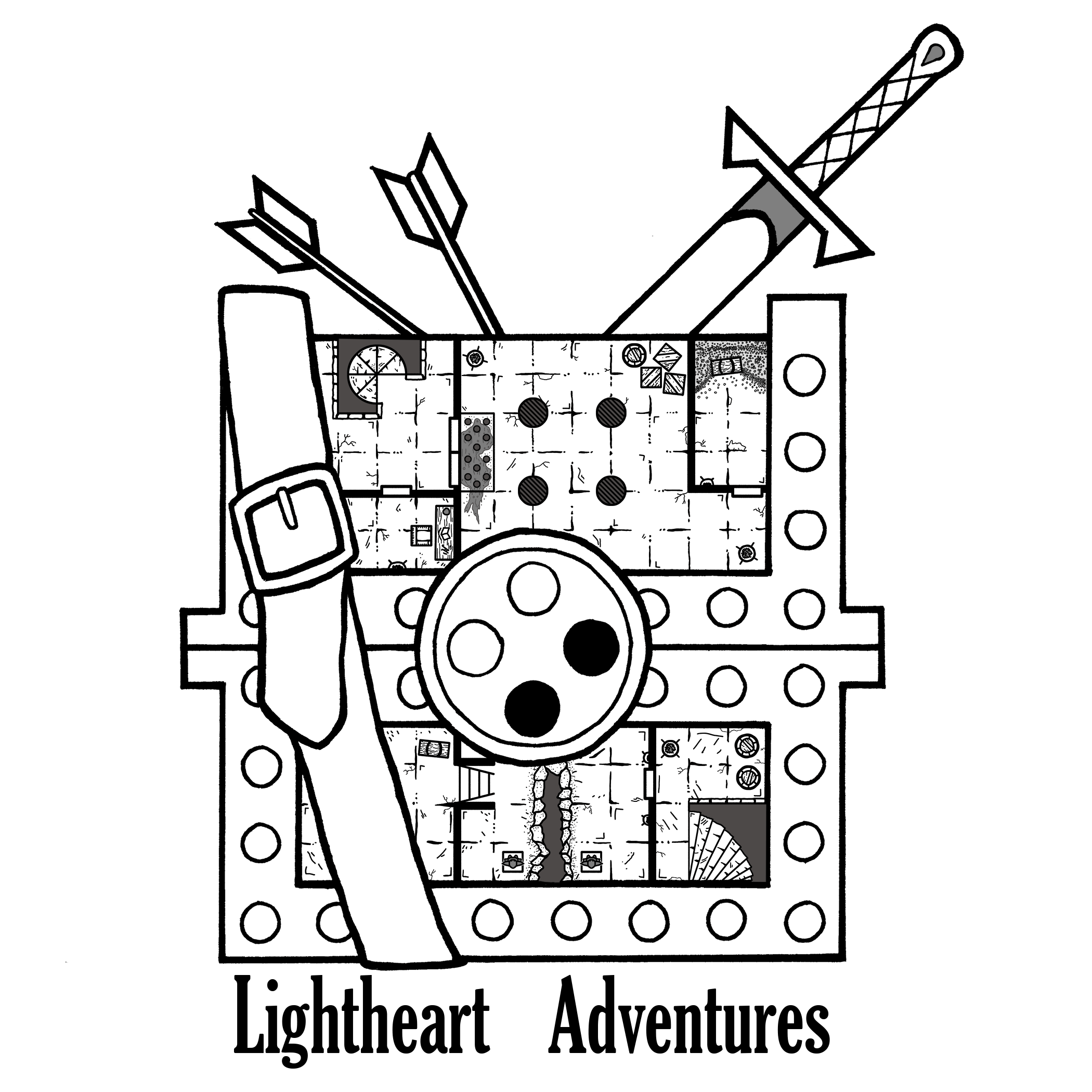Sometimes simply rolling a d20 feels a little lackluster. Having your rogue effortlessly unlock a stuck door, a barbarian crashing through a barricade, or the wizard recalling ancient arcana can get a little rote. But what if your personal talents could translate to these skill checks? Would you feel up to the challenge that your character faces? I’ve been thinking about this topic for a while, and while some parts might not be possible due to quarantine limitations, I want to share my homebrew ideas for adding real world skills in RPGs! Yes, some of these skill check alternatives may be exceptionally silly and slow down game flow, but consider it a fun alternative for your next one-shot!
Disclaimer: This post contains affiliate links, meaning we may receive a small commission from qualifying purchases if you click on our links, at no additional cost to you. As Amazon affiliates, we may earn from qualifying purchases. You can see our full disclosure here. Thanks for supporting your favorite dungeon artists!
Strength Checks
Let’s start off strong by adding strength checks to our game! Contests of strength are as old as time, though many involve combat or are more effort than it’s worth. However, I’ve got an easy way to test your might at home as long as you have a few free weights available.
First, establish your weight threshold by selecting a free weight that you can safely extend out in front of you (pictured below). The goal is to meet or exceed the time limit without bending your arm or dropping the weight.
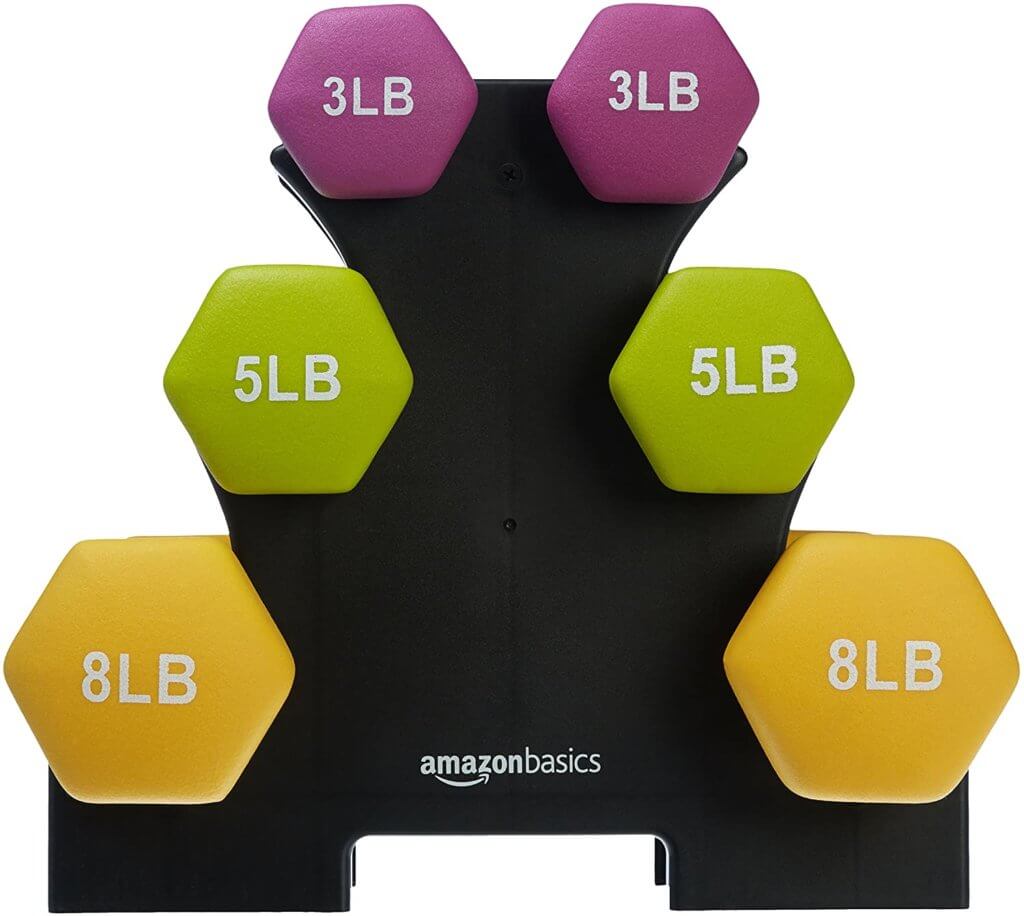

Image from ABCs of Fitness
Next, the DC of the check establishes how long the weight must be held. Below is the time average per DC:
- 5 (Very easy) — 1 minute
- 10 (Easy) — 1 min, 30 seconds
- 15 (Medium) — 2 min
- 20 (Hard) — 2 min, 30 sec
- 25 (Very hard) — 3 min
- 30 (Nearly impossible) — 3 min, 30 sec
Finally, your character’s total from skill proficiencies and ability bonuses reduce the time by 10 seconds per point. For example, Krogara needs to climb a high wall (DC 10) and has a total of 6 in Athletics. Krogara’s player then has to hold a weight extended for 30 seconds, instead of the full 1 min, 30 sec. If at any point a character’s skill would cause the DC time to be 0 minutes, then your player need not hold the weight, as they are just too powerful for paltry challenges!
If your characters ever need to roll with advantage or disadvantage, here are some suggestions to handle these modifiers:
- Advantage: Allow for a “do-over” if the player fails to succeed on the check, or reduce the DC by five.
- Disadvantage: Increase the DC by five.
Dexterity Checks
Next up in our real world skills in RPGs list is tests of finesse! For this one, we need a Jenga tower (or a similar block stacking game). The Dexterity DC determines the number of blocks a player needs to stack without collapsing the tower to succeed:
- 5 (Very easy) — 6 bricks
- 10 (Easy) — 12 bricks
- 15 (Medium) — 18 bricks
- 20 (Hard) — 24 bricks
- 25 (Very hard) — 30 bricks
- 30 (Nearly impossible) — 36 bricks
Much like in the strength check, your character’s total from skill proficiencies and ability bonuses reduce the bricks needed by 2 per point. Sariel wants to pick a rusted lock (DC 15) and has a total of 8 with a Thieves tools proficiency. Sariel’s player would then need to only stack 2 bricks to succeed. For an added challenge, don’t reset the tower after a skill test to ramp up the tension!
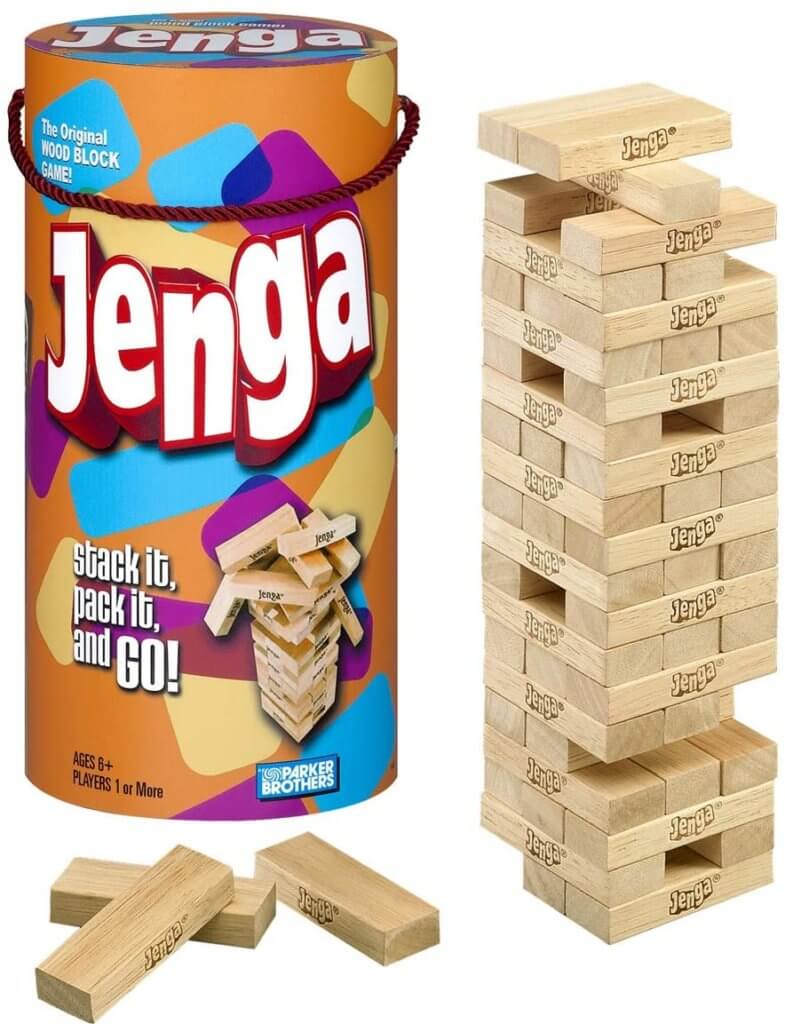
Constitution Checks
Unfortunately, there are no easily applicable Constitution checks that I can think of that aren’t “Hold your breath for X amount of minutes” or simply “eating contest”, so we’re going to skip this one.
Intelligence Checks
How does one check someone’s Intelligence score that isn’t just a math test? Since none of us play RPGs to take a quiz, I found that using puzzle balls can be a great way to challenge both mind and fingers! Fun fact: I partook in a Zombie LARP years ago where the event organizers used one of these balls to simulate deactivating a tactical nuclear device. Had our engineer failed to solve the puzzle, everyone at the event would have died (Thanks Katie!).
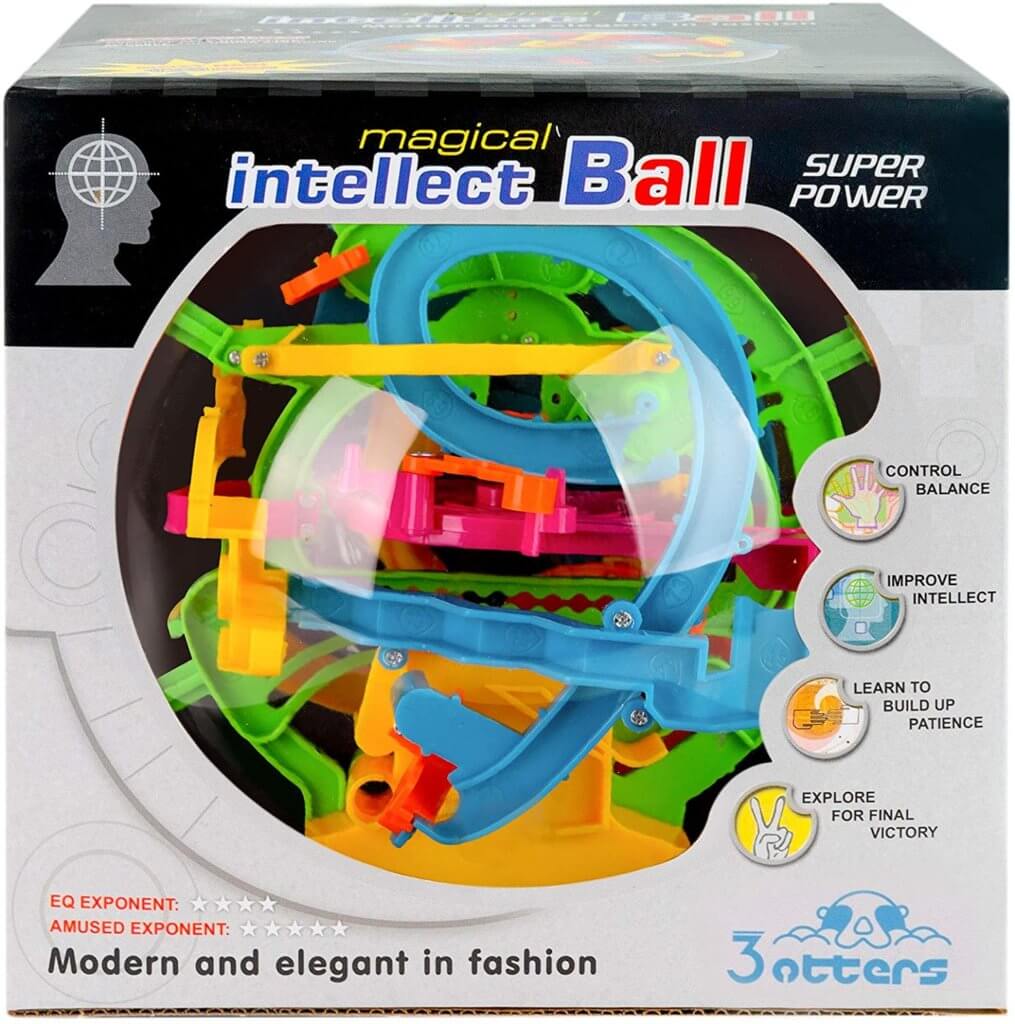
The Intelligence DC determines how much time a player has to solve navigate the metal ball inside to the goal:
- 5 (Very easy) — 6 minutes
- 10 (Easy) — 5 min
- 15 (Medium) — 4 min
- 20 (Hard) — 3 min
- 25 (Very hard) — 2 min
- 30 (Nearly impossible) — 1 min
Meanwhile, your character’s total from skill proficiencies and ability bonuses add 5 seconds per point. Balthazar attempts to remember some esoteric lore (DC 15) and has a 6 in Arcana. Balthazar’s player then has 4 min, 30 seconds to solve the puzzle ball. If your players start mastering the puzzle ball, you can either decrease the time allowed or set specific challenges since the puzzle ball has numbered checkpoints inside.
Wisdom Checks
Much like Intelligence, applying Wisdom checks to real world skills in RPGs is a bit tricky. However, I think that riddles and brainteasers are a great way to challenge your player’s perspicacity! The Wisdom DC determines the complexity of the riddle used (based on the above book’s difficulty scale):
- 5 (Very easy) — Simple
- 10 (Easy) — Smartypants
- 15 (Medium) — Prodigy
- 20 (Hard) — Brainiac
- 25 (Very hard) — Mastermind
- 30 (Nearly impossible) — Genius
Once told, your character’s total from skill proficiencies and ability bonuses equal several hints and wrong guesses for every two points. For example, Daydra attempts to calm a scared faun (DC 10) and has an 8 in Animal handling. Daydra’s player can either receive up to four hints or guess attempts (to a minimum of one) to solve the brainteaser.
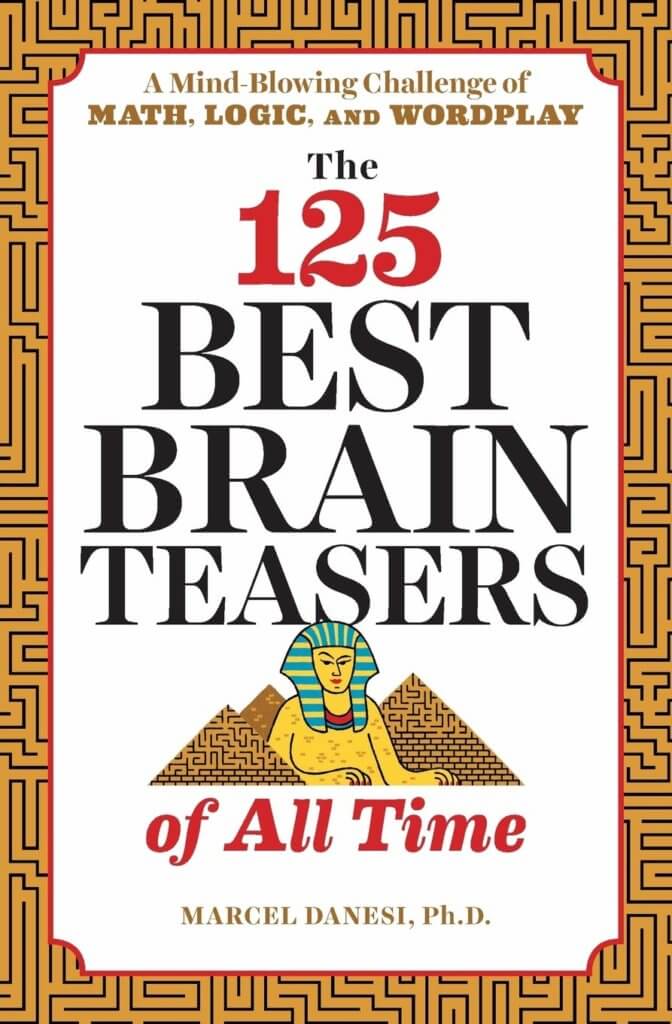
Charisma Checks
Make friends and intimidate enemies with the power of dance! This one requires Just Dance (or a music game like Rock Band–either way, make it a performance). The Charisma DC determines the complexity of the song:
- 5 (Very easy) — One song, player’s choice
- 10 (Easy) — Easy
- 15 (Medium) — Medium
- 20 (Hard) — Hard
- 25 (Very hard) — Extreme
- 30 (Nearly impossible) — Extreme, with the song muted
The character’s overall proficiency reduces the number of stars needed to succeed at the skill check, with three points equalling one star (to a minimum of one star). For example, Jaskier wants to entertain an amicable crowd with a song (DC 15) and has a 6 in Performance. Jaskier’s player needs to succeed at a Medium difficulty song with at least three stars. To adjust difficulty between DC levels, feel free to increase or decrease the song intensity.
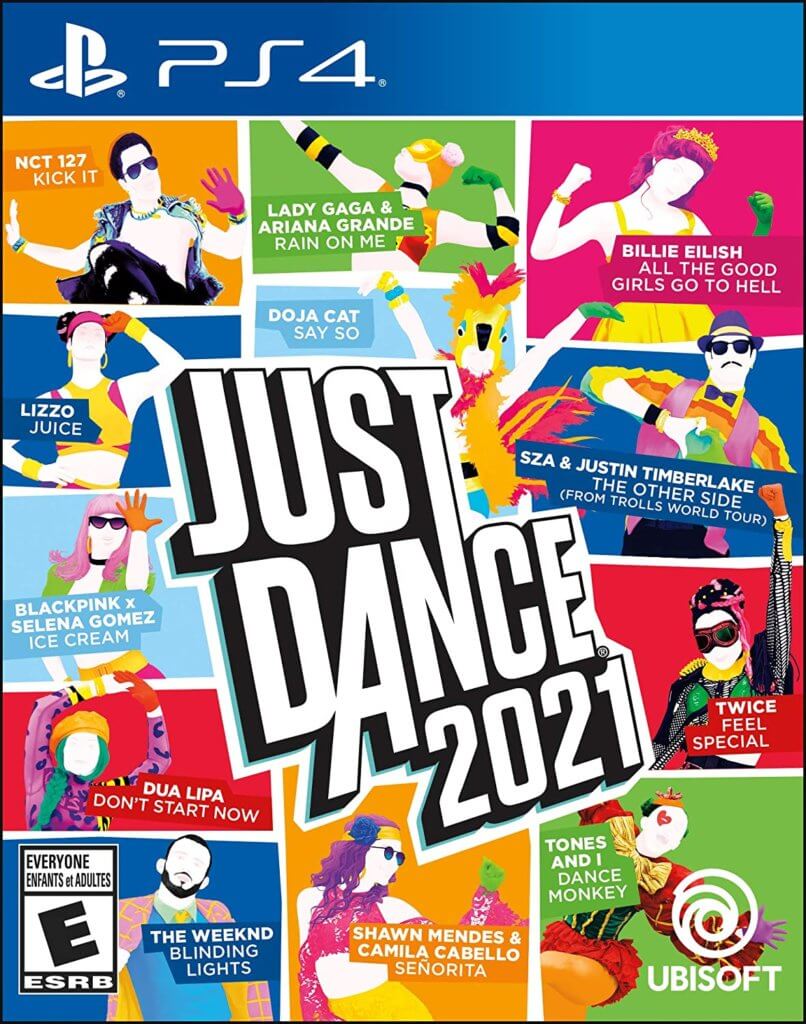
Wrap up
While we all can’t be the same as our heroes on the page, hopefully this alternative method to add real world skills in RPGs makes you feel like one!
Thanks for dropping by! We would love to know what you thought of this homebrew alternative, so please drop a comment here on the blog, on Twitter, Facebook, Instagram, or Discord! If you’d like access to more maps and content, including downloadable PDFs of our adventures, check out our Patreon. We’re able to do what we do because of all our amazing Patrons!

